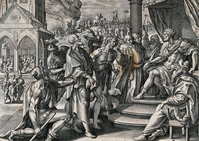 From the Greek geek (be patient, it's a rough cut): While most translations of Romans 12:9-13 are just fine, some nuances are lost (as those who speak other than English sometimes say) in translation. Here’s one . . . from verse 9 that’s worth noting. “Let love be genuine. Abhor what is evil; hold fast to what is good” (Romans 12:9, ESV).
There are no verbs. We (even they) had to provide them, but should not be at the expense of hearing how Paul set out his written words. And, in this case (v. 9), the two following participles should be heard as “how” (thus, my “by”) “the love” is “sincere,” that is, the manner in which “love” is shown to be sincere is in abhorring evil, holding fast the good. This gives Christian (or should I should, given the context, church) love content--action. And, also noting that Paul’s consistent use afterward of a specific, repeated grammatical construction (i.e., for other Greek geeks, a string of dative phrases—again with no verbs) probably indicates what “good sincere love acts like”: This is what church good love looks like: “Love one another with brotherly affection. Outdo one another in showing honor. Do not be slothful in zeal, be fervent in spirit, serve the Lord. Rejoice in hope, be patient in tribulation, be constant in prayer. Contribute to the needs of the saints” (ESV). Note: Of course, English versions need to iron or smooth out Greek-to-English renderings to make it more readable . . . most of our English translations, if watching all such linguistic and grammatical nuances of a language (i.e., the koine Greek of the NT) that was written to be heard and not read (so much) would be quite choppy and tiresome to just read . . . but sometimes it’s good to get at the Greek that was to be heard (and not just read).
0 Comments
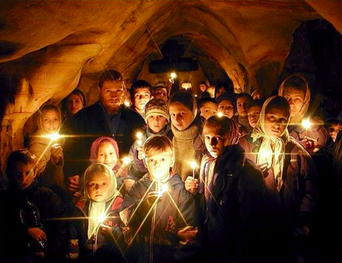 Some quotes of importance from my reading this morning. As we approach Easter, we reminisce the empty tomb, and rightly so, but we should also reimagine that the local church is the reality of the resurrection . . . the gathered church in a local place, in the flesh of the community, are sites of the resurrection presence of Jesus in the here and now. Yet, the way in which a church demonstrates the power of the resurrection is by living out a cruciformed (cross-oriented) life among its congregation and in the midst of the community that surrounds it. The quotes: “. . . these [church] communities gathered as sites of resurrection presence.” “Resurrection presence can only be enjoyed and inhabited by grace through cruciform postures of self-giving love, service, and celebration.” “. . . resurrection presence is encountered wherever people gather in the name of Jesus and adopt a cruciform identity.” “It is no less countercultural in our day where a variety of pressures force churches to attract increasing numbers of people by appealing to cultural desires that are subtly shaped by the present evil age . . . The redeeming presence of heaven is brought to earth in cruciform communities, transforming our imaginations so that we see the world as God sees it. It is not a world of limited goods where we all must hoard and protect our stuff and pursue our own selfish desires.” “Churches enjoy the superabundant realities of heaven by enacting cross-oriented community behaviors that we find throughout the Gospels and Paul’s letters: confession of sin and forgiveness, service to one another, self-giving love embodied through meeting one another’s needs and offering hospitality to one another—especially to those on the margins of our communities.” ~Timothy Gombis, Power in Weakness: Paul's Transformed Vision for Ministry (p. 52–54) IV. Our Church Life should be an Invitation to Come to Jesus, take His Yoke, and You will Find Rest: We are to embody the invitation to Come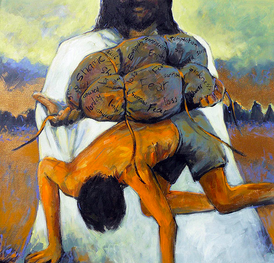 Our little Hill church puts itself into the heart of the community: at the Hill North Community Management Team, the Free Sidewalk Breakfast each Saturday, our Summer Park BBQ ministry; showing up to almost every community event, and my pastoral street counseling right out my front door. When John the Baptist was facing the end of his ministry (in Matthew 11), he told his own disciples to go ask Jesus if he was the One or should they look for another (was this for John or his disciples, I have my opinion on that, but it is surely for the church). How do they know Jesus is the One and there is none other to look for? Jesus asks them what they see (which implies action, demonstration, something happening): How do they know? ➥ the blind receive sight ➥ the lame walk ➥ lepers are cleansed ➥ the deaf hear ➥ the dead are raised up ➥ the poor have the gospel preached to them (Matthew 11:4-6) This is exactly what Jesus has been doing as his disciples followed him around. No doubt this is Matthew’s version of Luke’s draw on Isaiah 61, which promises that God’s Spirit would be on the Messiah to preach the gospel to the poor, to heal, to free and bring justice (Isaiah 61:1). This is the context in Matthew. This is exactly what Jesus is doing. This is what the temple and synagogue leadership miss, ignore, or are fighting against.They are still bothered for in Matthew 11:19 there is more accusation: . . . they say, ‘Look at him! A glutton and a drunkard, a friend of tax collectors and sinners!’ We end our thread in Matthew 11 where Jesus invites all who labor and are heavy laden to come. First, Jesus praises the Father that “all things have been handed over” to Him “and no one knows the Son except the Father, and no one knows the Father except the Son and anyone to whom the Son chooses to reveal him.” As Presbyterians, we identify with this divine election. Yet we forget that the means of grace to call the elect is given at the same time: 28Come to me, all who labor and are heavy laden, and I will give you rest. 29Take my yoke upon you, and learn from me, for I am gentle and lowly in heart, and you will find rest for your souls. 30 For my yoke is easy, and my burden is light.” Recently during a Hill Sunday sermon on Matthew 11, I asked my own congregation: “How do you think the young church, with nothing much to offer, no social or political power, possessing little resources—and life didn’t really get easier and better for early believers. They risked everything, and for most, life got harder. In the first 150 years after Pentecost, how did Christianity became the largest religious sect in and around the Roman Empire? How? They accepted all into their fellowship, this changed their households . . . street by street, village by village, table by table. It all changed where gathered-churches lived out “Come all who labor and are heavy laden.” The body of Christ, the local church, with Jesus our Head, ruling and reigning at the Father’s right hand, is His presence in the community, in the Hill community, in your community right here in Concord. We show them Jesus by who we are and what we do so that all who struggle and toil and are carrying burdens no one should carry alone (because they see) hear the invitation to Come to Jesus and take on His yoke and find rest. We are to embody the invitation to Come. We need to be refreshed in the gospel every time we gather because we need the power of the gospel in order to be the gospel in action. I might get everything else wrong about church planting . . . I might not even be very good at it, at least not good at what is expected . . . but one thing I will get right, by God’s grace, to help the CPC in The Hill flock understand and know what it means to follow Jesus around . . . Our church does this . . . even though we are a church in an under-resourced community, we spend ourselves on our community, attempting to associate with the lowly, the hurt, those who's lives are messing, unclean, spoiled, and forgotten. A church needs to be where crowds are (out in the ebb and flow of community life): this is why our small under-resourced church spends its time in the community, places where crowds show up. This is what it means to follow Jesus around and it is how others know that the kingdom of heaven has appeared. *This sermon was preached at Redeemer Presbyterian Church in Concord, MA on Sunday, May 19, 2019. The full sermon maybe downloaded as a PDF (here). An audio version is also be available >> Audio version Part I | Part II | Part III | Part IV
Recently during a Sunday sermon on Matthew 11, I asked: “How do you think the young church, with nothing much to offer, no social or political power, possessing little resources—and life didn’t really get easier and better for early believers. They risked everything, and for most, life got harder. How do you think, in the first 150 years after Pentecost, Christianity became the largest religious sect in and around the Empire? How? “They changed their households . . . street by street, village by village, at the table [I pointed to our table where we would shortly celebrate the Lord’s Supper together]. It all changed right here where gathered-churches lived out ‘Come all who labor and are heavy laden.’ “The body of Christ, the local church, with Jesus our Head, ruling and reigning at the Father’s right hand, is His presence in its community. We show them Jesus by who we are and what we do so that all who struggle and toil and are carrying burdens no one should carry alone hear (because they see) the invitation to Come to Jesus and take on His yoke and find rest. We are to embody the invitation to Come.” ¿Como piensas que la iglesia naciente sin nada que ofrecer, sin poder, careciendo de recursos? - y la situación no se puso ni mas fácil ni mejor para estos primeros creyentes que se arriesgaron todo, sino la vida mayormente se les hizo aún más difícil - ¿Como piensas que dentro de 150 años el cristianismo llegó a ser la religión más prominente en y alrededor del imperio Romano?
¿Cómo? Ellos hicieron cambiar sus hogares ... calle por calle, aldea por aldea, en la mesa. Todo se cambió allí mero, donde las iglesia reunida practicaba el "Venid a mí, todos los que estáis cansados y cargados." El cuerpo de Cristo es la iglesia local, con Jesús como nuestra cabeza regiendo y reinando a la diestra del Padre, su presencia en esa comunidad. Les demostramos a Jesús por quienes somos y por lo que hacemos para que todo aquel que lucha y labora y que lleva carga pesada no lo haga a solas porque oye y ve la invitación de venir a Jesús y tomar su yugo y hallar descanso. Debemos encarnar la invitación a venir. 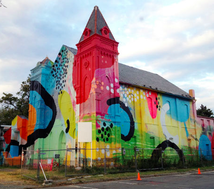 Lesslie Newbigin “believed that the ‘whole thrust of the 20th century [last century] rediscovery of the missionary nature of the church is lost if it does not lead to a radical re-conception of what it means to be a local congregation of God’s people.’ And so he frequently expressed his conviction that the local congregation is the primary reality of the church and therefore the only possible hermeneutic of the gospel” (Michael W. Goheen, The Church and Its Vocation: Lessie Newbigin’s Missionary Ecclesiology, p. 108). Amen and amen. But this means getting our “local” ecclesiology right (as in biblical). We confuse our form for church, yet our form (and its institution) will determine much in how we (and the public) understand what we mean by the gospel. We tend to read back our form and way of doing church into the New Testament (a bad hermeneutic!). We need to think more deeply about ecclesiology and the local, gathered-church. Frankly, we need a "radical re-conception" of the nature, purpose, and meaning of the local church, what I prefer to call, the local, gathered-church.
The salt, light, and city imagery should be read in light of or as flowing from the Beatitudes (Matthew 5:3-12). Verses 11–12 are certainly a bridge, making a pivot from the general invitation nature of the Beatitudes to the church directed “you are” subjects in vv. 12-16. Yet, what penetrating flavor? What light is to shine? What kind of City on a Hill? The reference to doing “good works” in verse 16, at a minimum, implies the good and counter-cultural and contra-social/societal flourishing that flow from the Beatitudes. Salt and light that indicate that the poor in spirit (by now should should know this means the actual poor), those who mourn (i.e., those lacking resources), and the meek (i.e., the powerless of the earth) have the kingdom, are comforted, and inherit the earth; light that illumines from a City where the desire for God’s justice is thirsted for and hungered for; where mercy prevails, the unclean are welcomed, and filled with peacemaking sons of God. The content and polity (if you will) of the City on a Hill (which I do take as church, bytheway) is the Beatitudes. And, if you (we, that is a church) actually lives under this constitution of Beatitudes, remember, “Blessed are those who are persecuted” for persecution will come for these social-upheaving Beatitudes are not naturally welcomed nor accepted by the powers (i.e., the powerful and those in power); and, remember, you are blessed “when others revile you and persecute you and utter all kinds of evil against you falsely” for power (the powerful and those in power) do not want a City like this. But “rejoice and be glad, for your reward is great in heaven, for so they persecuted the prophets [i.e., those who foresaw this City on a Hill, the king of this City, and this time of Beatitude-flourishing] who were before you.” Jesus is the King of this City and it is the good works of the Beatitudes that will glorify our Father who is in heaven.
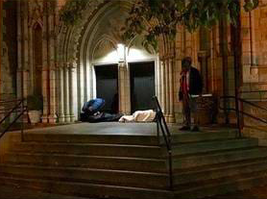 Power does not naturally distribute power equitably. This is why, first and foremost, calling upon the powers to distribute power more fairly (whether government, industrial complexes, religious institutions, or business corporations) will not address the problem of power being more equitably distributed. When politicians and civic leaders get elected or into positions because they promise more equitable distribution of power, once in power, they have an idolatrous temptation to remain in power over the very people they claim to advocate for—so, they, too, will not naturally be given to share that power more equitably. As was once said, power corrupts; absolute power corrupts absolutely. The only place power is distributed equitably is at that Table in the (better, yet, a) gathered-church. And, this is exactly what happened in the Book of Acts. This is the background of New Testament Letters like Romans, Galatians, and James; and, for the early church (for the first 150 years or so) . . . and, which, now, should be happening at every gathered-church of strangers and unequals in every locale, on every street, in every neighborhood, and within every community. This is at least one reason why the church, a the local gathered-church, is so, so important. Where this isn’t happening in a local church (i.e., a gathering of strangers and unequals at worship and at Table), there needs to be lament and repentance and correction in righteousness. Our problem is that much of the church (local and institutional) has so aligned with Christendom (that is, a culture that steals from Christianity just enough to control the industrial-church-complex and its own citizenry, but is formed by power-idolatries, such as ours here in the West) that, we, too, have become a power (or powers) that do not naturally distribute power equitably. But this isn’t the gospel, nor is it the body of Christ prescribed in the New Testament. But we didn't learn Christ this way (Ephesians 4:20; cf. 4:17–32). Yet, this is the place (the gathered-church) where power is defeated (Ephesians 6:10-12; Colossians 2:15) and the place where the only power known is the crucified power of the cross of Christ (Gal 2:20). This is the place where “there is neither Jew nor Greek, there is neither slave nor free, there is no male and female” (Gal 3:28); for this is the place all, by one Spirit, have been “baptized into one body—Jews or Greeks, slaves or free—and all were made to drink of one Spirit” (1 Corinthians 12:13); a space “where no Greek and Jew is, that is (kai) [where there is no] circumcised and uncircumcised, barbarian, Scythian, slave, freeman, but all things and in all is Messiah” (Colossians 3:11, my translation). Given that we are subject and, too often, align ourselves to the powers (at least the side of power we like or identify with or the side that seems to give us power, which is an illusion, of course). It is too natural to believe our only recourse for justice is to call upon those in power (i.e., the State or the industrial-complex) to give up power and more equitably redistribute power. But they will not, no matter how much they promise. However, the harder work—which is God’s way in this world now that Christ Jesus has died, been raised, and ascended to the right hand of the Father, and the church, the local gathered-church is His body, His presence in a community—the harder work is ecclesiastical, not simply protest, advocacy, and, certainly not, voting correctly. Our contemporary church-power and the way we tend to advocate in the public square mimics the current systems of power, so it is natural to have “Christian leaders” gain power, who develop followings as a demonstration of their power, to call upon the powers of government and systems of power to do justly. And to punish those who do not. So, what we have—what we end up with--is only “power” vs. “power.” But what God wants is crucified with Christ-power among the church, that is, our local churches (rural, suburban, exurban, and urban), and in church planting (especially in the harder places, the hinterland places, the geographically “unlivable” (and unlikeable) places, the marginal places, the border-places, the places where there is the lack of power).
There is no doubt in my mind. There is no way around it. The issue and problems of justice are a Table issue where the gathered-church exists. We are called to the harder task, church, where justice, that is, the place where the more equitable distribution of power can be experienced, demonstrated, and displayed.
*This is the fourth instalment of quotes from my presentation on "Church (local), the poor and their neighborhood," which are somewhat random, but still focused on the church and the poor. For all the posted "Church (local) quotes >>
The local church as the “thin place” and “the space between”: “Thin place,” a sacred place or space where unseen mysteries of the other world (i.e., “the heavenlies”) and the material places of the earth touch. A “thin place” is where one can walk in two worlds at the same time, a place of liminality—a place where the two worlds (seen and unseen) are fused or mingled together, yet where distinctions can be discerned. “A thin place” is where the boundary between heaven and earth is especially narrow, a place where a sense of the divine is more readily perceived. The church (a local church) as God’s household-temple is such a “thin place.” The “space between” is the common or transitional space where boundaries are fluid, a mix of human activity, specifically that space between the build environment. The church (a local church) is such a “space between” [from C. M. Anderson, “The Sacred “Thin” Space Between: (Eph 3:16): The Temple- Church as Revelation of God's Reconciling Mystery and Its Potential for Church Growth Outcomes” (paper)].
*This is the third instalment of quotes from my presentation on "Church (local), the poor and their neighborhood," which are focused on applying the Bible, especially in the context of "neighborhood." For all the posted "Church (local) quotes >>
|
AuthorChip M. Anderson, advocate for biblical social action; pastor of an urban church plant in the Hill neighborhood of New Haven, CT; husband, father, author, former Greek & NT professor; and, 19 years involved with social action. Archives
February 2024
Categories
All
|
Pages |
More Pages |
|
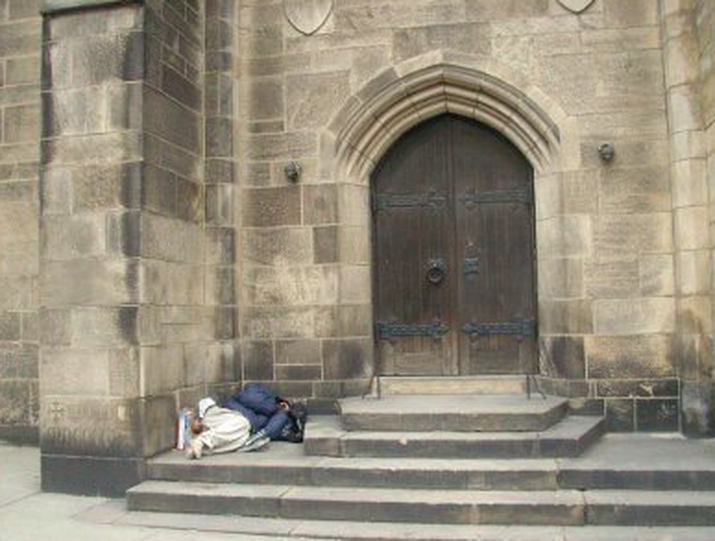
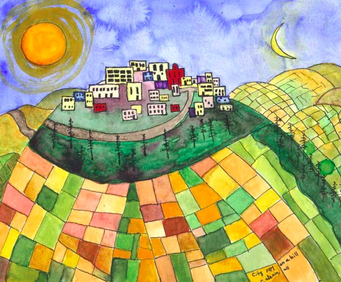
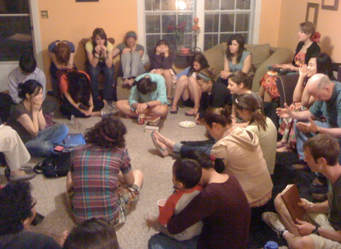
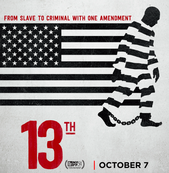
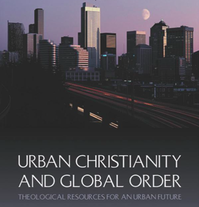
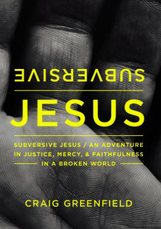
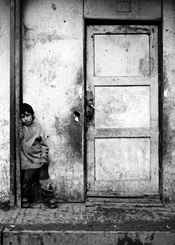
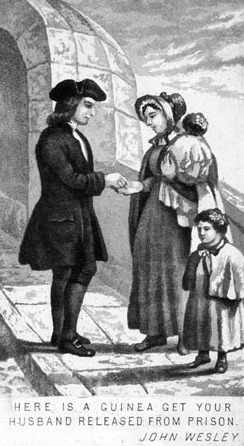
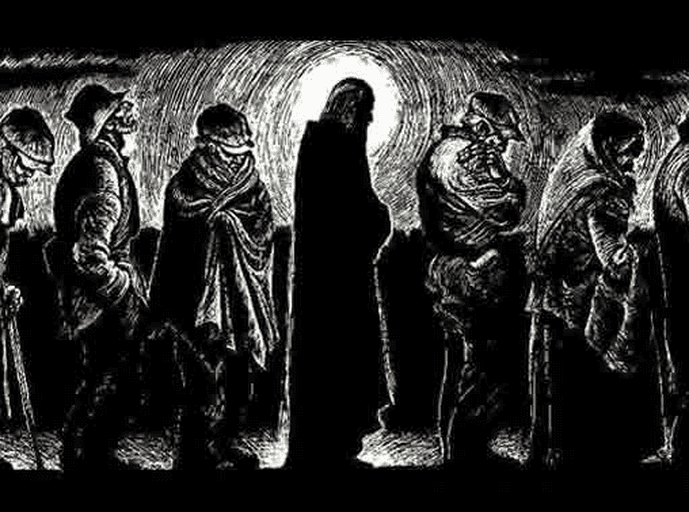
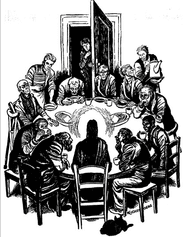
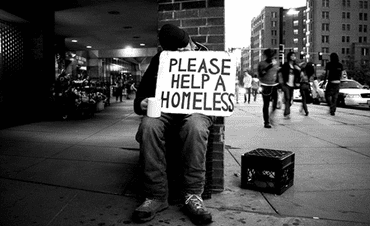
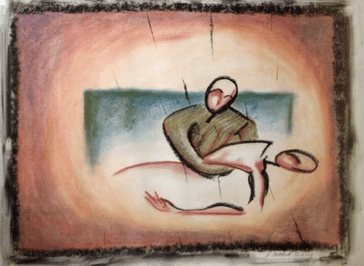
 RSS Feed
RSS Feed